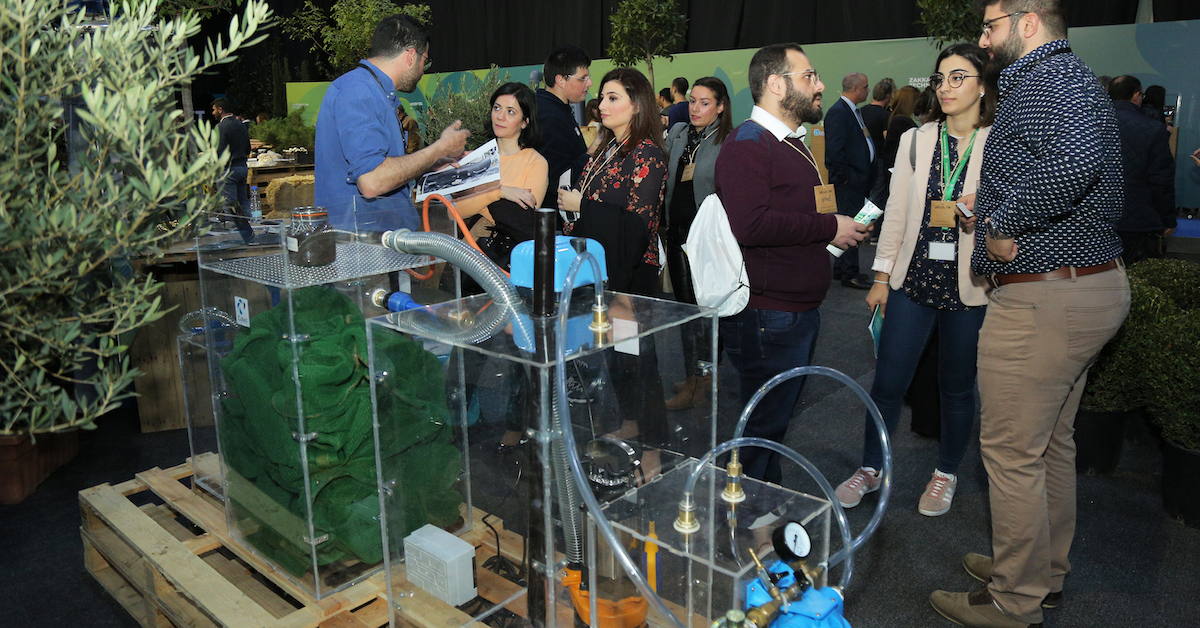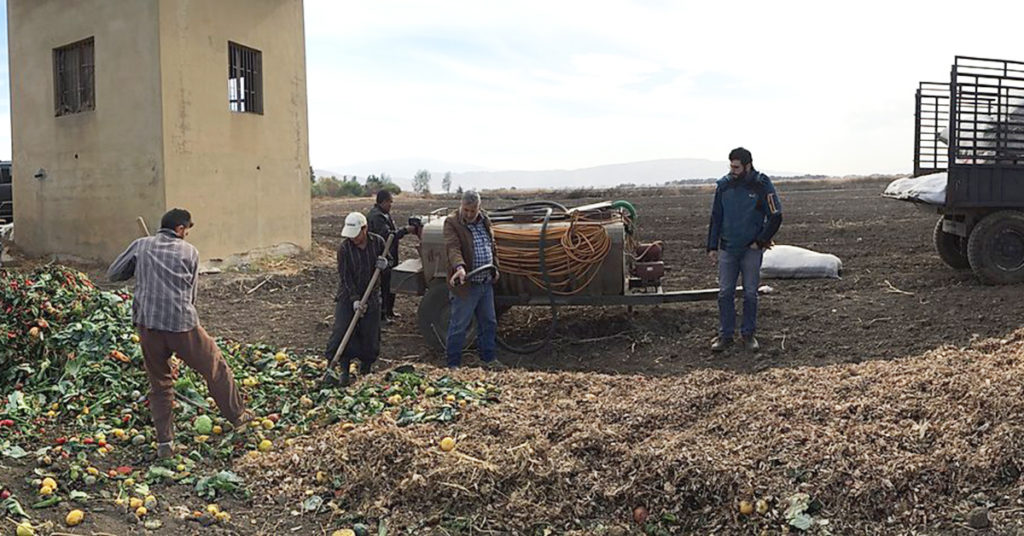
One man’s trash is another man’s startup. At least this is the case for Compost Baladi, the startup dedicated to bringing decentralized composting and waste management solutions to the Lebanese public.
Led by its co-founders Marc Aoun and Antoine Abou Moussa, the Compost Baladi team designs and operates municipal composting facilities, conducts national and regional waste management assessment, feasibility studies and awareness sessions, amongst its many services. One of its most promising products in the residential ‘Earth Cube’ composter and ‘CubeX’ a home-scale wastewater and food waste treatment system.
Starting with Sustainability
Marc Aoun was excited to come back home to Lebanon after living and studying in the US since the age of 16. A passionate young man, he majored in environmental sciences and sustainability and was very focused on agriculture and land and resource management. His work in the organic farm on campus, composting the cafeteria food waste, sparked his interest in the field and as he planned his move, he was excited to implement the things he had learned.
“When I moved back, I started working with the United Nations ESCWA in the water development department, which is part of the sustainable development department. There, I was mostly focused on regional issues and how to address sustainability on a regional level. Eventually, I felt like I needed something more on the ground and more tangible in terms of impact. I started working with an environmental consulting firm in Lebanon called ELARD where I worked mostly on studies for environmental pollution and parameters,” recounts Marc.
When Marc met Antoine Abou Moussa, they had both been working as consultants on waste management projects. At the same time, the waste management crisis in Lebanon had spiked. They saw an opportunity and a gap in bio-waste management or organic waste management solutions provided in the country. From there they decided to launch their startup and received a small investment from Fondation Diane to get started. “The name Compost Baladi started as a blog by a French gentleman who was teaching people how to compost at home. We started collaborating with him and eventually, he gave us the name of the blog to use as our company name!”
The First Product
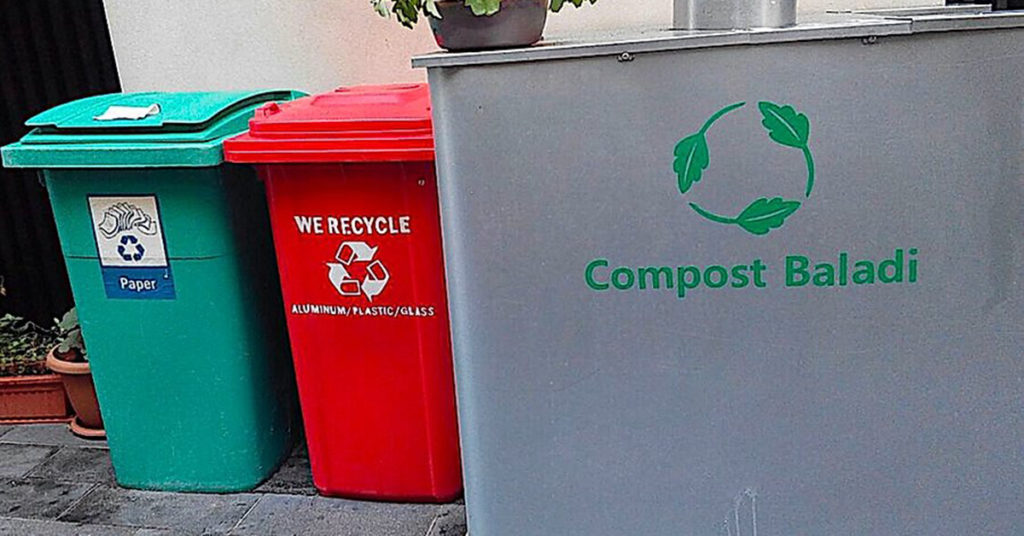
Compost Baladi started with building wooden boxes for composting and training people on using them. In their first year of operation, they installed over 100 wooden compost boxes all over the city and the country. The boxes sold at $150 per piece.
“By the end of 2017, we were able to set up our first proof of technology using ‘the aerated static binding method’ with USEK, who were the first adopters of this technology in the country, and still are. In 2018, we partnered with a US company and upgraded the locally manufactured product, because we found that most of the local market did not have the luxury of a garden to host the wooden composter that we were offering.”
The wooden composter evolved into the ‘Earth Cube’, a product more adapt to urban living. It offers automation features while remaining in the relatively low-cost frame. At a price point of $650 and a required space of 1.2 sqm, the team has already sold 50 pieces of the model and continues to install them across the country with clients such as the American University of Beirut.
Waste Management Support and Awareness
In parallel, the team worked with development agencies to provide support to municipalities in setting up their waste management and composting operations. “We’ve done this with Aintoura, Manara and Aitanit, while also supporting in vocational training of underprivileged or vulnerable communities in different sustainability activities related to agriculture and composting. We trained them on composting at home and composting for business. We also worked with them on plant propagation and sustainable land management, pest identification and biocontrols. We aim to improve their livelihood by reducing their costs and improving their contribution to sustainability.”
“In 2019, we continued with the same work with one union of municipalities which is Minieh and raised awareness in over 12,500 households on appropriate sorting methods. We also created a smaller system for composting which is still in development called the ‘Earth Drum’ to try to tailor to people living in apartments.”
The diverse consultancy and product offerings allowed the founders to continue funding their startup activities. They also complemented their product offering by distributing and selling wood chipping machinery to help municipalities better manage bio-waste, especially waste from agricultural production and forest maintenance. They later topped that by supporting those municipalities to convert the wood into an alternative renewable energy source.
New Challenge, New Opportunity
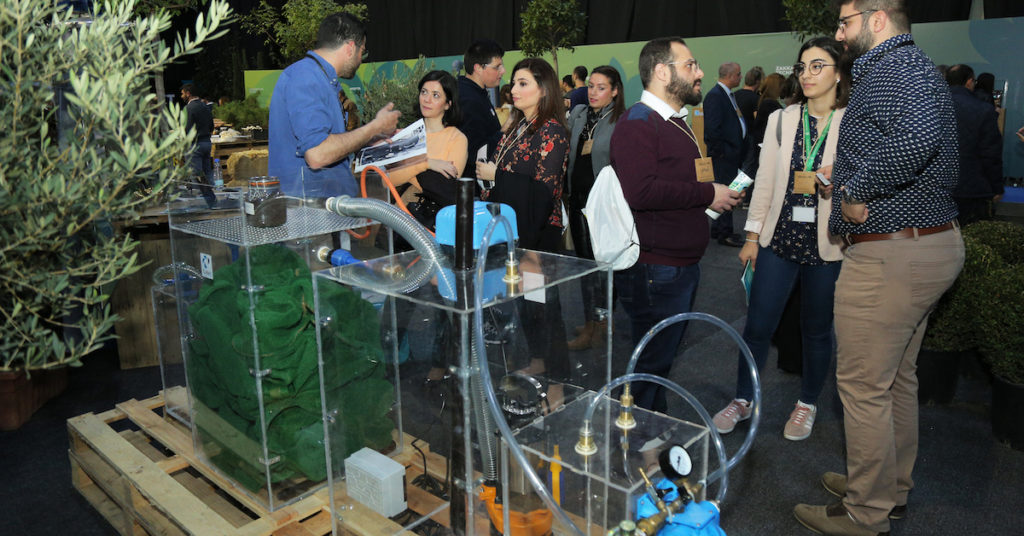
In 2019, the startup was able to reap its efforts in environmental work and social impact. They participated in various competitions and won the MIT Social Enterprise competition with a $50k prize, the Expo Live from Expo Dubai with a $100k prize and many other awards. They were also incubated in the Agrytech Accelerator to develop their Cubex system and entered the Impact Rise program to help scale their startup – both programs developed and managed by Berytech.
After the October revolution in Beirut and the economic crisis that came along with it, the startup had to re-strategize its expansion plans. “We are creating a waste collection service for grocery stores and commercial establishments that will be converted into compost in a facility that we are building. We will then supply the compost locally to substitute the imported one that is continuously increasing in price, given the economic situation in the country. These are two gaps we are looking at filling as we turn the economic crisis into an opportunity for self-sufficiency on a country level.”
Beyond the commercial establishment and the collection service that they are now focused on, the startup continues with the vocational training and support in the wood waste management. They have trained on composting around 500 people and on sorting another 30,000 people. Meanwhile, they are tailoring the ‘Earth Cube’ for a global market, focusing on developed countries such as the EU and North America where they will be selling it to waste collection companies to offer it to their clients in their service areas as a mean of reducing the volume of their waste, on-site, before collection.
The Main Challenge
“Our main challenge is related to how we survive in this environment versus if we were in a more developed country. Our capability to penetrate the market would have been much less of a struggle,” explains Marc.
“It takes some time to know the ins and outs of the sector as we get new insights on how this sector functions every day. It took time for us to tailor our business model to what works and what is scalable and what is reliable because it takes time to identify all these factors.
The true challenge lies in the enabling environment. On a business development level, we had amazing support from the Berytech community and all the startup communities in Lebanon. Talking to startups in other countries on a regional level, we realize that they don’t have the same privilege that we have in that area.
But on the other end, we face the lack of regulation, monopolies, lack of transparency, the current way of doing things – the business as usual of Lebanon – and how hard it is to penetrate as a startup into an industry that is held up by giants, with the lack of appropriate regulations to give an added advantage to a startup that has an impact-related value proposition.
Yet, in my opinion, this should not be an excuse. There is a problem in the way things are done, but if your business model is creative, you are going to be able to be present where others couldn’t. We have created a strategized business model to adapt to those challenges and continue to adapt as we grow as a company.”
On Entrepreneurship and Social Impact
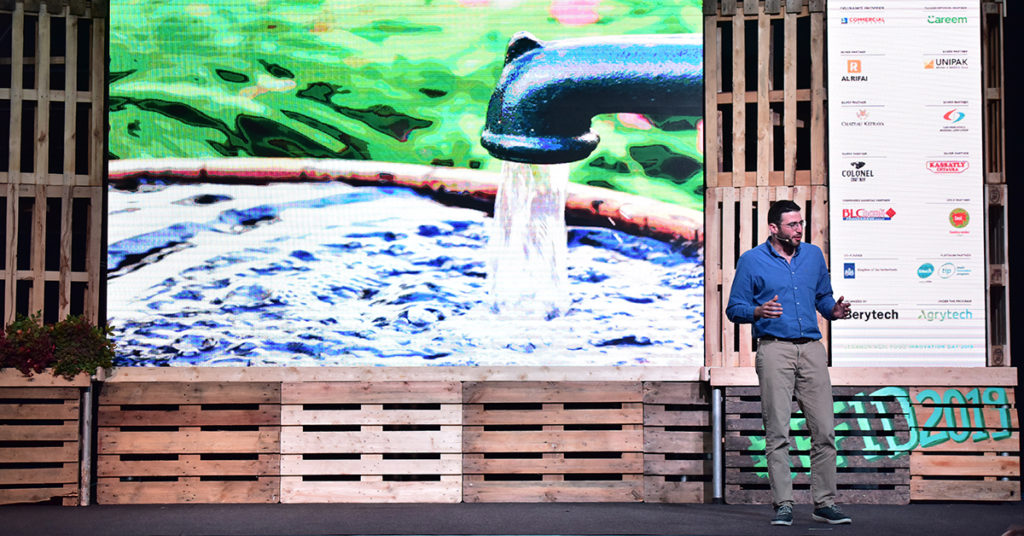
As the company capitalizes on the impact it creates both socially and environmentally, the term ‘social enterprise’ remains debatable according to Marc, who believes that each company defines its social impact for itself.
“You define your company’s social impact in terms of your team, in terms of ownership of the company, how you price your solutions, whether your target is the highest revenue and margin, or the highest volume, reach and impact. I think that is where the social aspect falls. What we target is not making the highest sales but reaching the highest number of people at the most affordable prices possible. Our greater interest is measuring the impact of our intervention. In other words, putting impact over profit.”
While entrepreneurship might not be an obvious choice for some, for Marc it is a sum of opportunity costs. “Every entrepreneur faces certain doubts about their decision of taking that path when faced with challenges. We start thinking about opportunity costs. Of course, the opportunity cost is worth it on most days, but on some days when you feel like you are not getting the traction you need and time is passing, you start questioning whether it will work out or not. However, that immediately is overcome with the realization that although your financial return is compromised in the short term, the benefits of doing something you are passionate about while also being able to employ such a large group of people around you give you immense satisfaction.
But if you look at what you have generated as an immediate cash flow to yourself on a personal level it’s small compared to what you have had if you were employed with a multinational. Yet the entrepreneurship experience is much more valuable, especially when you look at the valuation of your company over time.
My reward is how much I’ve learned as an entrepreneur and how multi-skilled I have become while having an insight into how business decisions are made. I can pursue my true passion and at the same time I am investing in what I believe in.”
Learn more about Compost Baladi here.


